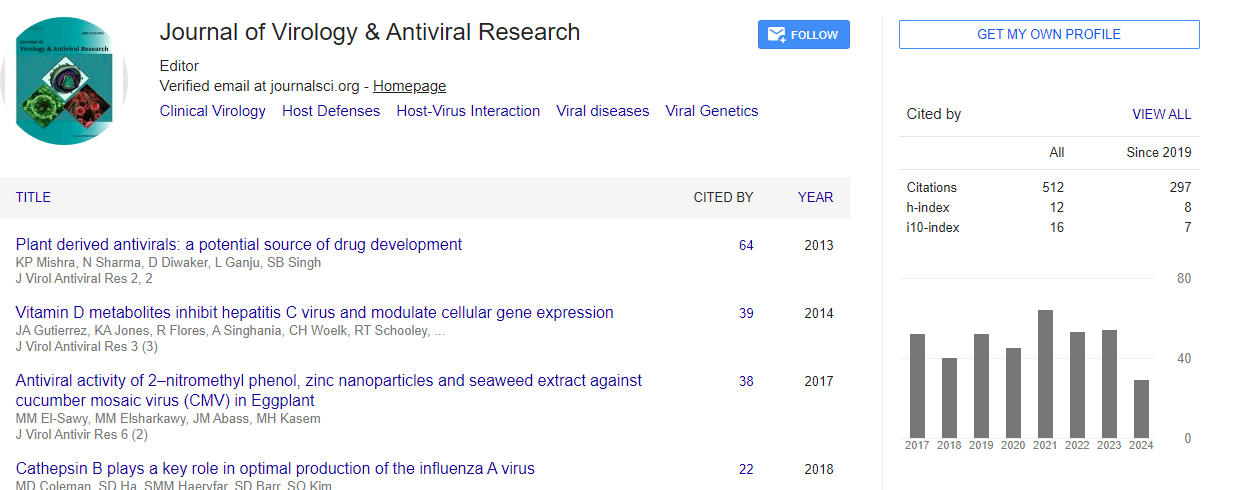A Possible Mechanism of Action for the Inhibition of Plant Viruses by an Antiviral Glycoprotein Isolated From Boerhaavia diffusa Roots
Glycoprotein from Boerhaavia diffusa roots acts directly on virus (es), when it was mixed with virus inocula and incubated in vitro. The viruses were either inactivated by the aggregation of particles or by coating with glycoprotein and /or fracturing of virus particles. While in vivo glycoprotein prevents infection and multiplication of virus (es), by inducing systemic resistance in host plants, when applied 24 hrs prior to virus challenge. The virus infection in hypersensitive and systemic hosts was prevented/ arrested and a very few particles were seen in electron micrographs of samples taken from treated hosts and subsequently infected/ inoculated with different viruses. It is most probable that low molecular weight resistance inducing glycoprotein, from B. diffusa plants when applied to susceptible host plants, confers upon them the ability to fight viral attachment and inhibit or exclude the virus infection. B.diffusa glycoprotein stimulates host plants defense against virus infection. The induced resistance appears to be a form of expression of repressed pre-existing mechanism(s) which gets activated through this glycoprotein and prevents viral infection or virus spread.
 Spanish
Spanish  Chinese
Chinese  Russian
Russian  German
German  French
French  Japanese
Japanese  Portuguese
Portuguese  Hindi
Hindi 

